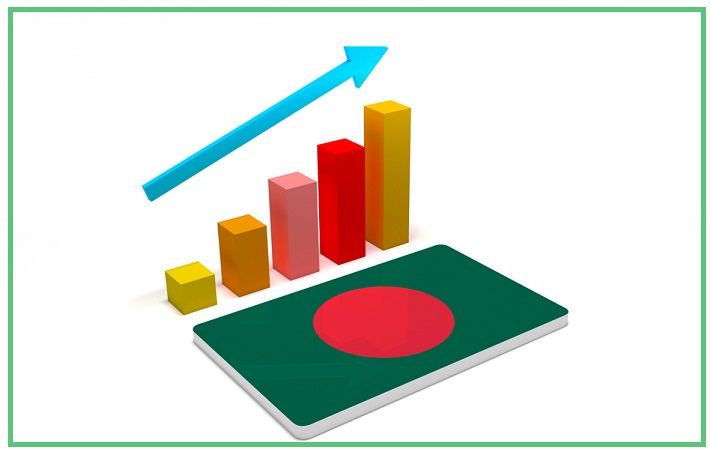
The revised projection is still lower compared to International Monetary Fund (7.5 per cent) and Asian Development Bank (6.8 per cent) forecasts but higher than the 5.1 per cent projected by World Bank.
It is also lower than the government's estimate of 7.2 per cent set for the current budget, but stronger than the government's provisional estimate of 5.5 per cent in the last fiscal.
However, US-based Fitch said this improvement in the economic outlook will be partially offset by weaker gross fixed capital formation growth as a result of China's withdrawal of funds for some of its Belt and Road projects owing to disagreements with the Bangladeshi government.
"We maintain our expectation for Bangladesh's exports recovery to continue, benefiting also from likely diverted garment orders from Vietnam as a result of the ongoing suspension of many Vietnamese factory operations due to the COVID-19 outbreak," it said in the report.
Fitch also revised its forecast of private consumption growth in the country to 8.5 per cent for this fiscal from 5.5 per cent previously. However, it maintained the forecast for government consumption at 6 per cent.
The rating agency continues to expect exports to record a strong rebound of 17 per cent as global garment brands rebuild their inventories.
"Bangladesh may also benefit from diverted [readymade garment] orders from Vietnam as a result of factory work suspensions as Vietnam continues to grapple with its COVID-19 outbreak in and around the major municipalities of Hanoi and Ho Chi Minh city. Myanmar being an unattractive garment supply source amid logistical challenges from domestic civil conflict and political turmoil will also put Bangladesh garment factories in a good position to grow their market share," the report observed.
Bangladesh's export earnings made a strong comeback with a little over 14 per cent growth year-on-year in August this year following a more than 11 per cent slump a month ago, according to data from the country’s Export Promotion Bureau (EPB).
Fitch revised down forecasts for imports growth to 12 per cent from 18 per cent earlier.
"This is due to a weaker rebound in imports as a result of less need for capital goods and raw materials arising from a weaker construction outlook. Food imports will also decline as food supply shortages ease, lowering the import bill," it added.
ALCHEMPro News Desk (DS)
Receive daily prices and market insights straight to your inbox. Subscribe to AlchemPro Weekly!